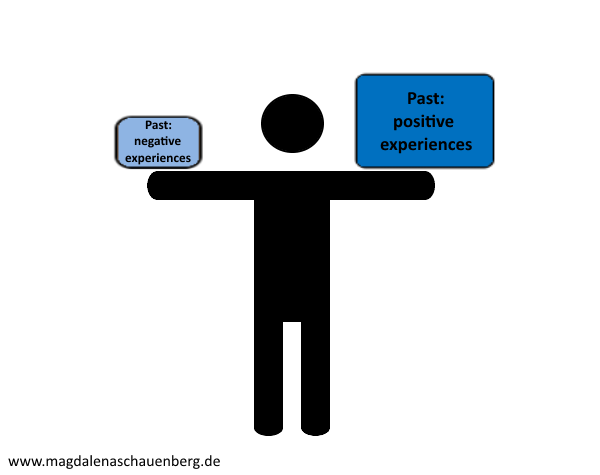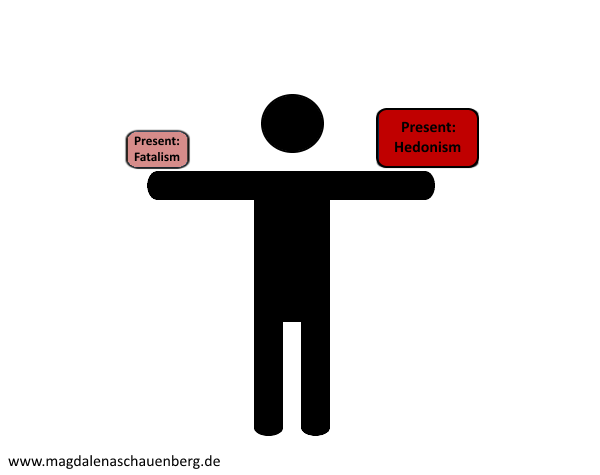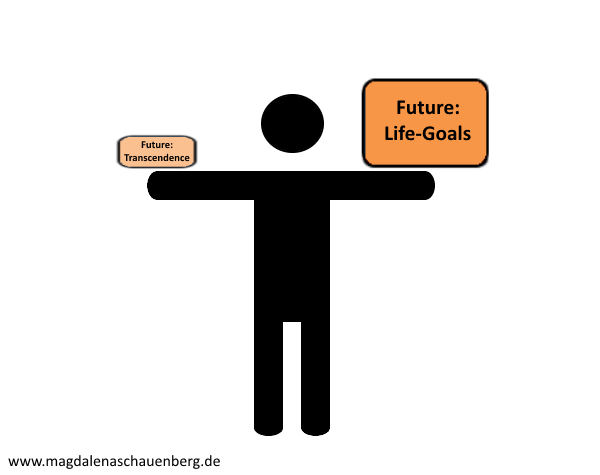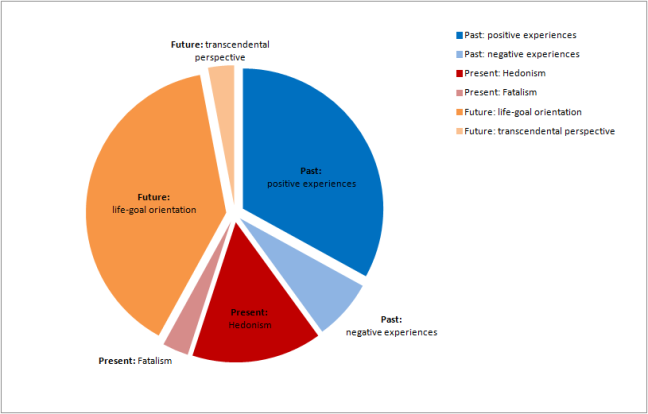Everybody has a certain way to think about time. We prioritize experiences and events in the past, present or future. Our “concept of time” influences the way on how we act and even how successful we are in certain parts of our lives, for instance developing further as a professional athlete.
Philip G. Zimbardo [1], former professor at Stanford University and one of the most iconic people in psychology dedicated some of his research to the influence of time concepts on people’s lives [2+3]. In my daily work with athletes from all around the world I regularly experience how their professional sport careers also depend on their concepts of time. This experience was the reason for me to connect Zimbardo’s concept of time [4] with the influence on athlete’s development.
Prioritizing past, present or future
In order to examine time concepts, you need to look at important experiences from your past, present and future in regards to your athletic development. Which important good and bad experiences do you recall from the past? Which experiences are you making right now? Which do you assume for the future? Prioritizing experiences is important because they influence your behavior in a meaningful way.
Priority of the Past
If you prioritize positive experiences of the past, these can give you roots. Roots keep you grounded and connected to your identity. However, if you focus on negative events of the past, it can prevent you from trying new things in life because you already experienced certain things to go wrong.

For athletes, positive experiences of the past are an important source of self confidence and trust. Then again, keeping bad incidents in mind will paralyze and prevent athletes from going forward, because they lost hope that things might change for the better (e.g. after an injury, failing in competition or trying new training methods). In addition, the so called “self fulfilling prophecy” will kick in: If you expect bad things to happen, you unconsciously behave according to this expectation and they will probably happen in reality as well. This, at the end, confirms the initial perspective.
Priority of the Present
Living in the present can have the wonderful benefit to give you energy to explore people and places and to enjoy the moment. But if the present is your only focus it can result in behavior which is hedonistic or fatalistic.

If athletes behave hedonistic, they prioritize present comfort and rewards before future success. That’s basically incompatible with the way how training works: You are training hard and consistent in the present to earn improvement and success for the future. If your priority is on sleeping, eating, socializing or skipping training, it will limit your development and future success to a great extend. A certain amount of self discipline is a must if you want to be successful in sport: delaying your present needs and wishes for what is promoting your success in future. Studies have shown multiple times[5] that self discipline even beats talent in regards to overall success!
Athletes with a focus on the present may have a fatalistic believe which limits success and development as well – but due to a different reason: Fatalism means to be passive because you believe that your actions will not have any impact and the future can’t be changed because it’s already written. Such a believe inhibits actions and prevents any effort into learning, training, investing in relationships or being persistent in what you really want. Consequently, you are convinced that nothing will change: you are sure that you will never be better than that team mate who always shows a great performance or you will never be in the first 11 (football) which means you don’t have to work for it. That’s a great excuse for being lazy, isn´t it?
Side Note: Children, who never learned that trying and working hard in the present will pay out eventually in future, will grow up into those fatalistic and hedonistic adults. Even if parents just want to keep away all struggles and harm from their kids, overprotection can have serious consequences for children’s development in future. (Future article planned)
Priority of the future
Keeping your eyes on your future can give you wings to fly to new destinations and to accept challenges. People with a focus on their future are often life-goal oriented. Sometimes, it can even expand to a transcendental perspective, which is focused on life after death.

Athletes with a solid life-goal orientation are well prepared for success. The decision between short term goals or present pleasure on one side and long term goals on the other side is mostly not difficult for them, because they have a strong vision and motivation. Nevertheless, as an athlete you need a work-life balance on the long run, because sacrificing every pleasure as well as social life will increase the probability to quit your professional career. If you are able to enjoy the moment, create joyful experiences while not forgetting about the long term vision, you have a real advantage in the hard world of competitive sports.
When you tend to forget your present life and your physical body, your focus is transcendental. This might be more common for spiritual and religious people. In the physical world of competitive sport this type of person is rare. You may not find enjoyment in the present challenges in training or competition because you might not have a life goal to accomplish in your kind of sport. As your priorities are differently set, there is not much reason to keep up the effort in order to challenge yourself.
The best time concept balance for your success
Each time concept provides benefits and disadvantages, especially if the focus on past, present and future is not balanced. Yet, is there anything like the optimal time concept “recipe” for athlete’s success? Yes, there is: The following graph visualizes the optimal time concept balance for your success!
 Perfect Time Concept Balance for Success
Perfect Time Concept Balance for Success
- Past: A great focus on positive experiences in the past provides roots and a stable self-confidence in your own qualities. Negative experiences should play just a small role; they are the base to learn from failures and to avoid doing the same mistakes again in the future.
- Present: A moderate weight on present hedonism allows to enjoy the moment and to be open to new situations and people.The weight of fatalism should be pretty small because you will not be able to provide the necessary effort into your career, without optimism that your actions will have an impact.
- Future: A large emphasis on life-goals provides meaning and direction for efforts and actions. It is a great frame for personal development and improvement.
As a parent or coach I hope this article can provide some useful information to weigh praise, motivation and goal setting with your athletes and kids. Part of the development should be the experience that persistence and effort in the present will pay out with long term success in future. It is important to praise small steps, effort and even attempts, and to teach that humans are able to develop skills and to change behavior. Failure and mistakes should always be considered as important lessons during development, because they can help to make things better next time (Read more: Learning from Failures).
If you are an athlete it might be helpful to consider professional help by a mental-coach if you realize that bad experiences from the past still have a big impact on motivation, self-confidence and even decisions in the present. Working with an experienced coach can help to develop positive thinking habits and can break old convictions and beliefs. Small changes you might be able to achieve just by focusing more on your strengths and positive experiences in the past. If you like to know more about that, you will find it here: How to improve Self Confidence.
Stay tunes for my hands-on guide how to figure out your concept of time and how to “fine-tune” your time-concept balance for more success.
Sources:
[1] Homepage Philip G. Zimbardo: http://www.zimbardo.com/
[2] Boyd, J. & Zimbardo, P. (2010): The Time Paradox. Using the New Psychology of Time To Your Advantage. Rider (Kindle Version available as well)
[3] The Time Paradox: http://www.thetimeparadox.com/
[4] A short introductions to Zimbardo’s “The Psychology of Time” (6:34 min)
[5] https://www.psychologytoday.com/blog/the-procrastination-equation/201110/hard-work-beats-talent-only-if-talent-doesn-t-work-hard: “Even if you weren’t born with genius in your genes, you can outperform the smartest of individuals as long as you work hard and the latter doesn’t.”
Teilen mit / Share on- More





